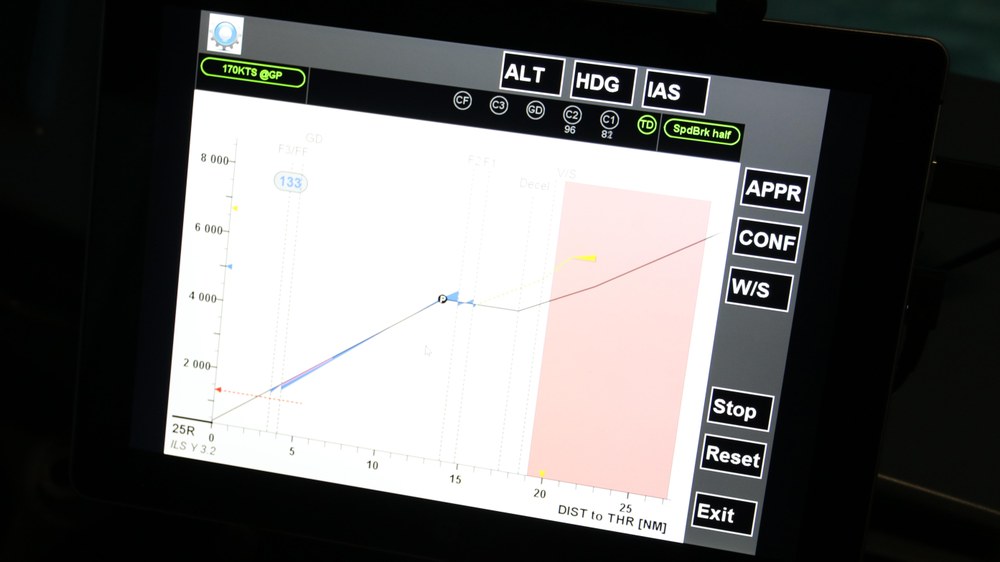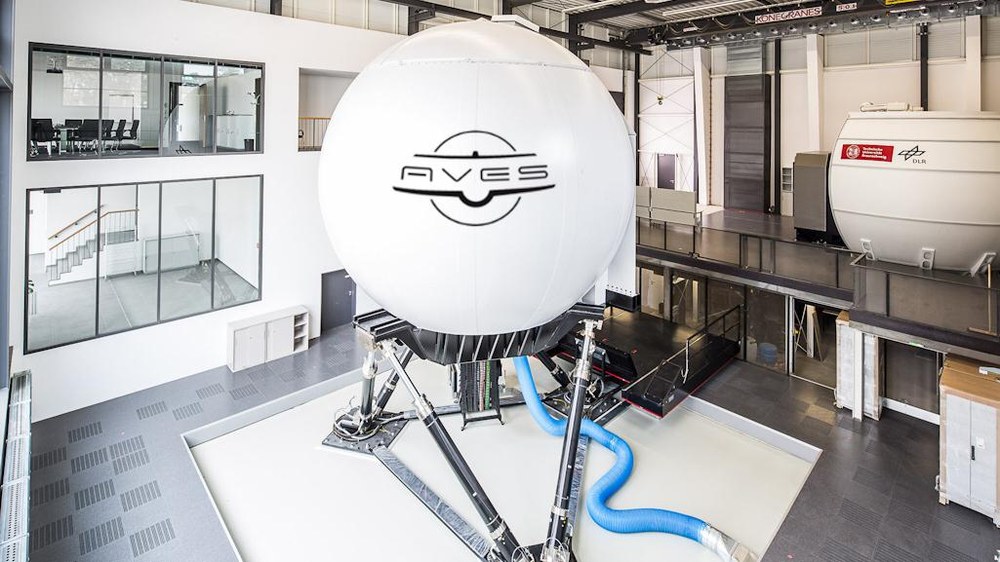Fine-tuning the flaps – low-noise approaches to Frankfurt tested in a simulator


Landing is one of the most labour-intensive stages of a flight. To help the pilots produce the lowest possible amount of noise in complex manoeuvres during the approach phase, the German Aerospace Center (Deutsches Zentrum für Luft- und Raumfahrt; DLR) has developed the Low Noise Augmentation System (LNAS) pilot assistance system. The system shows the pilot exactly when each manoeuvre should be carried out via a display on the flight deck. In a joint research project with Umwelt- und Nachbarschaftshaus (UNH) in Kelsterbach, test flights under real conditions during the peak period at Frankfurt Airport are planned from 26 to 28 September 2016 using the DLR Airbus A320 ATRA research aircraft. To prepare for these trials, 17 pilots from four different airlines accompanied DLR test pilots in a simulator.
"Flying precise vertical profiles for a low-noise approach is a highly complex task, in view of constantly changing conditions such as the wind and weight," explains LNAS project leader Fethi Abdelmoula from the DLR Institute of Flight Systems in Braunschweig, where the new assistance system is being developed and tested in a simulator. "In order to land with the lowest possible amount of noise, an optimum energy balance during the approach is essential. This means that an aircraft has to descend from its cruising altitude to the stabilisation height for landing at a low thrust level and, at the same time, with no unnecessary changes to thrust," continues Abdelmoula.
Manoeuvring optimally at the right time
The optimal time for each manoeuvre during the approach flight is shown to the pilot by the LNAS assistance system on the Electronic Flight Bag (EFB) display. This graphic, which can be intuitively read at a glance due to its simple design, is used as a long-term planning basis for the entire approach. "The pilot sees the ideal vertical approach profile separated into various phases on the display," explains Abdelmoula. "The optimal times for extending the flaps, reaching the intermediate flight altitude and lowering the landing gear are each highlighted in the approach profile." If the pilot carries out manoeuvres in accordance with these guidelines, the approach from cruising altitude down to the stabilisation height 1000 feet above the ground can be carried out with minimum thrust, resulting in the lowest possible generation of noise and consumption of fuel.
Avoiding the use of airbrakes
In the tests at the AVES – Air Vehicle Simulator (Air VEhicle Simulator) centre in Braunschweig, various approaches to Frankfurt Airport were carried out in the A320 flight deck under varying boundary conditions, as is planned for the real flights later. The conditions for each approach are very particular; weather conditions, visibility, the weight of the aircraft and air traffic management guidelines affect each landing differently. Therefore, the latest input and changing environmental conditions are constantly being taken into consideration by the assistance system throughout the approach. For example, if air traffic management guidelines change or the pilot carries out a suggested manoeuvre (such as deploying the initial flap settings to lower the speed) just a few seconds sooner or later than the system recommends, all of the subsequent manoeuvres are adjusted. This means that the optimal approach profile for the current situation is always recommended, defined in terms of compliance with the stabilisation conditions, using as low an engine speed as possible and completely avoiding the use of noisy airbrakes. The results from the simulator are giving Abdelmoula confidence: "The intuitive control method and optimisation algorithm for the vertical approach profile have already been tried and tested."
The LNAS project is sponsored by Umwelt- und Nachbarschaftshaus (UNH) Kelsterbach and DLR Technology Marketing.

